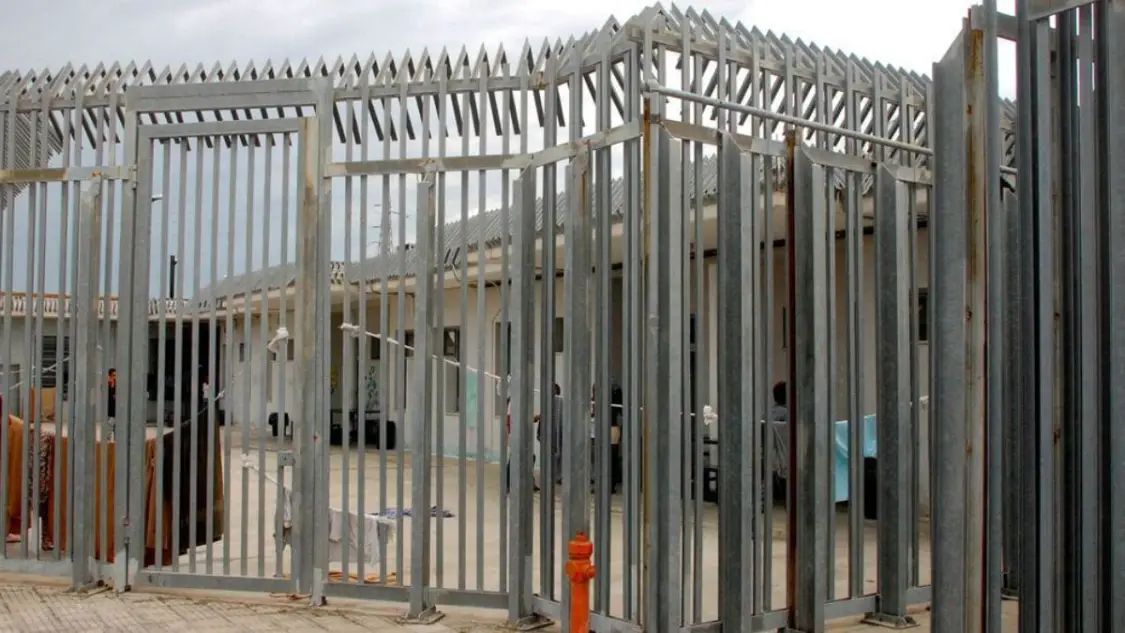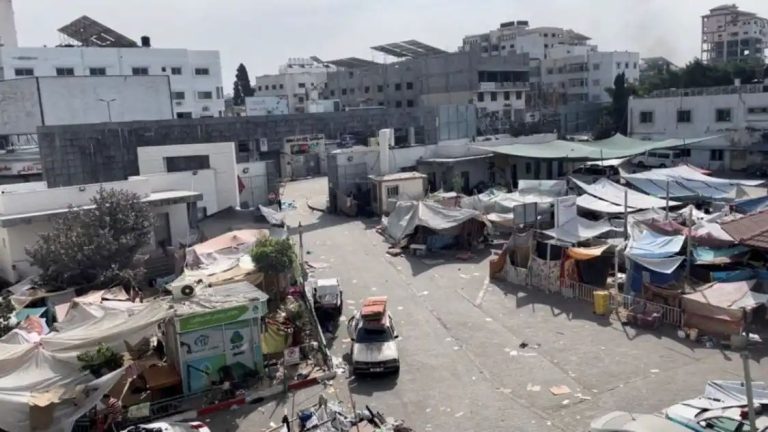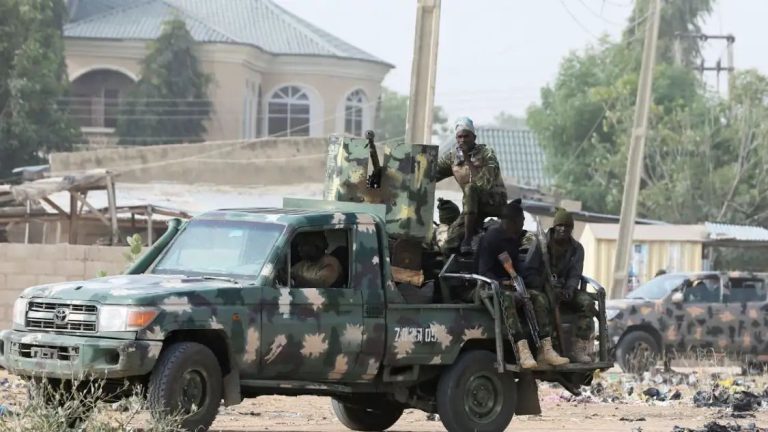Italy under pressure to close its migrants detention center over human rights violations
There is increasing pressure on Italian authorities to shut down a notorious detention center for migrants in Rome, where a 19-year-old Guinean man is said to have hanged himself last month.
Opposition senators on a visit have criticised the inhumane circumstances facing those who have been told to leave Italy but are still awaiting return.
Human rights organisations have long criticised Italy’s ten migrant repatriation centers. They characterise them as human rights violations black holes where undocumented migrants are effectively held in conditions worse than prisons for months without facing charges.
The centers are intended to serve as short-term holding facilities for foreign nationals ordered to be expelled for criminal or other reasons, or for migrants whose asylum applications were denied, while the necessary paperwork is finished and they can be returned home.
But because of bureaucratic delays and a lack of repatriation agreements with countries of origin, only around half of the detainees are actually sent back and the centers end up acting as de facto prisons but without a prison’s rehabilitation, educational or proper medical facilities, rights groups say.
The right-wing government of Premier Giorgia Meloni has defended the use of the centres and even called to expand them as a necessary component of a broader strategy to manage Italy’s migration flows. Her government has extended the amount of time migrants can be held to 18 months as part of a deterrent strategy to persuade would-be refugees and their traffickers to stay home.
The Radicali Roma, an association affiliated with the Italian Radical Party, started an online petition Friday calling on centre-left Mayor Roberto Gualtieri to close Rome’s repatriation centre in Ponte Galeria, citing repeated episodes of violence, suicide and protests by desperate detainees.
Last month, the body of Ousmane Sylla was found in the centre after he apparently hung himself. He had been ordered expelled from the country, but Italy has no repatriation agreement with his native Guinea. After his body was discovered, detainees set mattresses on fire and threw objects at law enforcement personnel, resulting in 14 arrests. The centre has a maximum capacity of 125 people.
In recent days, another six migrants attempted to kill themselves at the same facility, said Marco Stufano, the head of the office of Rome’s prefect. One remained hospitalised, two were returned to the centre and three were transferred to other facilities because their conditions were deemed incompatible with detention at Ponte Galeria, he said.
Last month, Rome’s city assembly called on Gualtieri to open urgent negotiations with government authorities to close the Ponte Galeria, given the serious violations of human rights suffered by people detained there.
Even Italy’s national guarantor for the rights of prisoners, Mauro Palma, weighed in after visiting the centre in December. In letters to Rome’s prefect and police chief, Palma decried the lack of monitoring at the centre, saying any facility that deprives people of their freedom must have a functioning system of registering critical events and medical interventions for violence that results in injury, riots and attempted escapes to ensure the basic rights of detainees are being respected.
This week, three opposition senators visited the centre and emerged stunned by what they saw.
This place is worse than a penitentiary, said Sen. Ivan Scalfarotto, of the Italy Alive party. The rooms where they live are absolutely unwatchable, toilets are below any human standard. Inside this place people do nothing all day, there is no labour, training, no education, something that is normally provided in all our penitentiaries. People are kept here without any hope.
Sen. Walter Verini, with the opposition Democratic Party, said while criticism of the centres had been continuous for years, the government’s new provisions allowing for detention of up to 18 months required immediate action.
We have to fight because this is something unworthy of a civilised and democratic country, he said.
Interior Minister Matteo Piatedosi has described the expansion of the network of repatriation centres as a fundamental element in the government’s overall migration strategy, and said the difficult conditions found in them are the result of riots and vandalism by the detainees.
At a recent press briefing, he said 50 per cent of the detainees are repatriated, that there had been an increase of 20 per cent – 30 per cent in repatriations so far this year compared to the previous year, and that he expected the numbers to grow.
But the actual number of repatriations is among the lowest in Europe, with an average of 3,000 people sent back every year out of more than 150,000 arrivals in 2023 and more than 105,000 in 2022.
There is no prospective to deny any human rights, but in these centres are people who after a long process of checks of irregularity in their residency permits — present conditions of danger that are confirmed by judicial authorities, he said.





